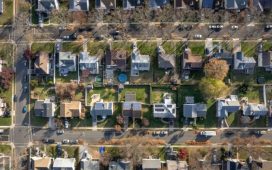A New South Wales corruption watchdog investigation into a senior planning bureaucrat alleged to have used insider information for personal gain through the government’s housing plan has been closed after investigators found “no evidence” of corrupt conduct.
The Independent Commission Against Corruption (Icac) on Monday afternoon announced – after a month-long inquiry following claims made in parliament about Katie Joyner, a planning director – that it would close the investigation.
“The commission is satisfied there is no evidence Ms Joyner or any other person engaged in corrupt conduct, and has accordingly determined to close its investigation,” an Icac spokesperson said.
Joyner on Monday said she was seeking legal advice about her options and had “always acted in accordance with my obligations as an employee of the department”.
“My partner and I have been severely affected by these unfair allegations, which were raised under parliamentary privilege,” she said.
“I do not understand why these allegations were not referred to Icac in the first place so that the matter could be properly investigated rather than allegations being made public.
“Now that the Icac investigation has concluded and I have been cleared of any wrongdoing, I will seek legal advice as to what legal avenues are available to me.”
The claims were made by the Liberal MP for Wahroonga and shadow attorney general, Alister Henskens, speaking under parliamentary privilege in February.
He said he had received “credible evidence” to suggest Joyner had used information gained through her work for personal gain after she and her partner, Gary Boyd, bought a property within 400m of Gordon railway station for $3.8m in August last year.
Henskens said documents showed that around the time the National Housing Accord was signed and before the state government’s transport oriented development (Tod) scheme was announced, the public servant bought a home in an area to be rezoned under the policy and attempted to form a “property syndicate”.
Henskens claimed shortly after purchasing the north shore property that she contacted neighbours about “banding together to sell their properties to a developer promising a significant uplift on its current value because of the government’s likely housing policies”.
“A strong circumstantial case that the property’s acquisition was motivated by inside information as to the planned Tod policy can be made out,” Henskens told the parliament.
The claims were then referred to the Icac to investigate.
An Icac spokesperson said: “During the course of its investigation, the commission obtained and reviewed relevant records using its powers pursuant to section 21 and section 22 of the Icac Act, conducted a number of interviews, including with Ms Joyner, and conducted forensic reviews of electronic devices.
“The commission also undertook a review of the timeline of the Tod process, and when Ms Joyner became aware of the relevant Tod affecting the area in which she purchased property.”
The Icac found “no evidence” that Joyner, nor any other person, had engaged in corrupt conduct.
Henskens said on Monday evening that he had noted Icac’s statement.
“I have not yet had the opportunity to discuss this statement with my confidential source,” he said.
“Until I have had those discussions, I won’t be making any further public comment.”
The planning and public spaces minister, Paul Scully, said it was “an extremely embarrassing situation for the shadow attorney-general”.
“His assessment and judgement of what he identified as a ‘highly circumstantial case’ has proved to be nothing more than a baseless political attack,” Scully said in a statement on Monday evening.
“The leader of the opposition should ask Mr Henskens to apologise.”











